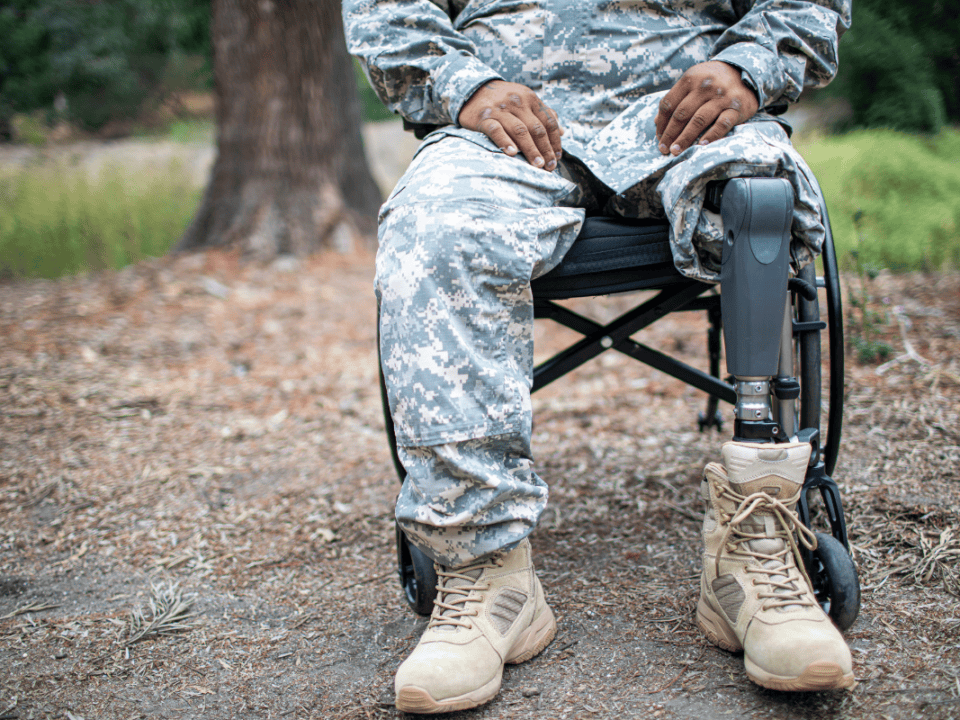 We tend to think of military veterans suffering from Post-Traumatic Stress Disorder in terms of military service in combat — that the disorder is caused by being under direct fire, subject to IEDs and their long-term effects, or just the day-to-day stress of combat possibilities.
We tend to think of military veterans suffering from Post-Traumatic Stress Disorder in terms of military service in combat — that the disorder is caused by being under direct fire, subject to IEDs and their long-term effects, or just the day-to-day stress of combat possibilities.
While we’ve spoken before about how PTSD can occur even when you are not in direct combat during military service, there’s one cause of Post-Traumatic Stress Disorder that can be hidden for years or even decades — military sexual trauma.
Today, we’d like to take a look at this tragically common occurrance and what you can do if you’re a survivor.
PTSD Related to Military Sexual Trauma: The Facts
When military servicemembers, both men and women, are subjected to PTSD as a result of sexual trauma, it falls under the heading of “effects of military sexual trauma” as defined by the VA.
Military sexual trauma includes not just direct sexual assault but also repeated, threatening sexual harassment that occurs while the Veteran in question was a member of the military. This means any sexual activity that is against one’s will, which can cover a broad range of harassment and assault.
Sexual trauma in the military is still troublingly common. Despite recent drops in numbers of incidents reported since 2012, there is concern that it is merely the reported amounts of incidents that are dropping, not the number of incidents themselves.
Men and women can be and are subject to military sexual trauma, which forces your body and physical brain into a stress response similar to being in a combat situation. The injuries, both physical and mental, that are present afterward can lead to PTSD that may begin to affect or even destroy your ability to function in everyday life.
It may become impossible to continue your current job, especially if it is still with the military or in a military setting. You may find yourself disassociating under even light daily stress, reacting with irritability or anger to your loved ones, or seeking solace and comfort in alcohol or using recreational drugs.
PTSD related to sexual trauma due to MST is very real. Those who are MST survivors may be entitled to certain VA disability benefits.
What can you do to ensure that your rights are protected while you gain access to the benefits and treatment you deserve?
Putting Together the Evidence For Your Claim
Compensation is available for survivors of military sexual trauma. The VA is careful to note in this document on available benefits that the compensation is not for the event itself, but rather for the conditions that may result. It’s essential that you maintain records of any and all doctors’ visits, visits to a psychiatrist or other mental health specialist, or injuries that pertain to your MST.
The documents the Department of Defense utilizes in reporting these incidents include the direct investigative reports during military service, and if you have any copies of these reports, they will be important for your case.
Since many rape and sexual trauma cases go unreported while the survivor is still active in the military, there are other “indirect” pieces of evidence that the VA will use to consider your claim. These include::
- Records from law enforcement, rape crisis center, or medical professionals (including mental health counseling centers, hospitals, and physicians)
- Pregnancy tests or STD testing documents
- Statements from family, roommate, fellow military Servicemembers, clergy, or counselors
- Requests for transfer to another military duty assignment
- Documents relating to a deterioration in work performance
- Substance abuse
- Depression, panic attacks, anxiety that appear without other identifiable cause
- Sudden or unexplained economic or social/behavioral changes
- Relationship deterioration or issues, such as divorce
- Sexual dysfunction
Any documents that can help to support your case should be saved and kept on hand and available for review by the VA. Be sure to speak to a legal representative with some experience in working with VA disability cases to ensure that your documentation is thorough enough to help you build the support you need when filing.
Even if your Military-induced PTSD due to sexual trauma claim has been denied previously, it is not too late. If you are able to provide new evidence or your claim was denied prior to 2011, you are able to ask for a re-evaluation.
Our SC Veterans Advocates Are Here to Help
At BNTD Law, our Veterans’ Advocacy team is made up of dedicated former servicemembers who understand the unique stressors of military life. They understand and empathize with military veterans or current servicemembers who may feel like most attorneys “just don’t understand” what it means to be a member of the Armed Forces and how that can effect everything from daily routines to the way PTSD as a result of sexual trauma can manifest itself.
To learn more about MST-related PTSD and what you can do to support your VA disability claim, give us a call at (803) 779-7599 or contact us online today.




